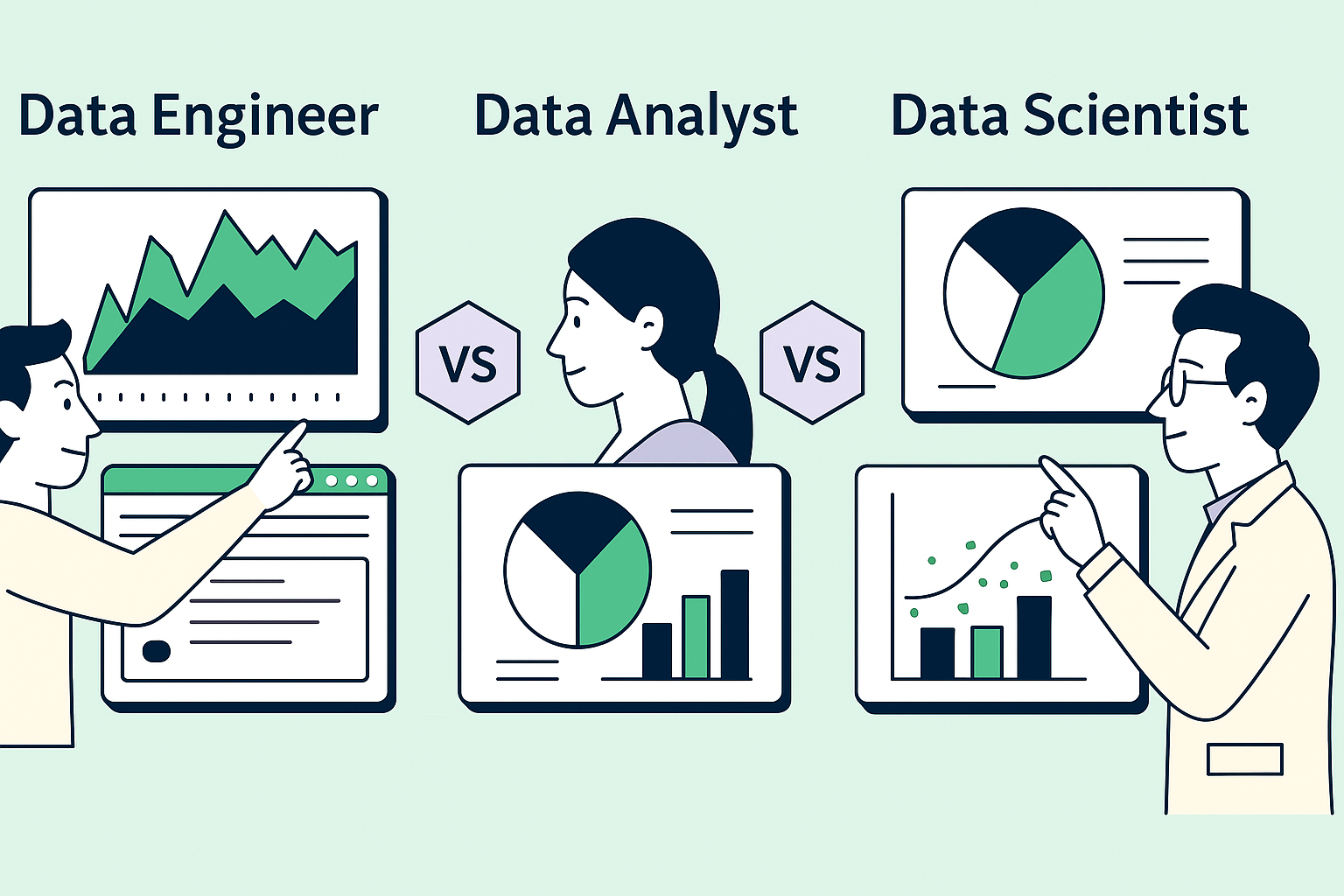Data Engineer vs Data Analyst vs Data Scientist: Understanding the Key Roles in Data Management
In the rapidly evolving field of data management, three critical roles stand out: Data Engineer, Data Analyst, and Data Scientist. These roles are essential for organizations in Canada, USA, South Africa and Australia as they leverage data for strategic decision-making. Understanding their differences can help professionals choose the right career path and businesses build efficient data teams.
What is a Data Engineer?
A Data Engineer is responsible for designing, building, and maintaining the data infrastructure that supports analytics and machine learning processes. They focus on data pipelines, databases, and system architecture to ensure that raw data is efficiently collected, stored, and accessible for analysis.

Key Responsibilities:
- Design and build scalable data pipelines
- Develop and maintain databases and data warehouses
- Optimize data processing and ETL (Extract, Transform, Load) processes
- Ensure data security and compliance with regulations (GDPR, CCPA, etc.)
- Collaborate with Data Scientists and Analysts to provide clean, structured data
Required Skills:
- SQL, Python, Scala, Java
- Big Data technologies (Hadoop, Spark)
- Cloud platforms (AWS, Azure, GCP)
- Data warehousing (Snowflake, Redshift, BigQuery)
- ETL tools (Apache Airflow, Talend, Informatica)
What is a Data Analyst?
A Data Analyst interprets and visualizes data to help organizations make data-driven decisions. They focus on identifying trends, generating reports, and providing insights that guide business strategy.
Key Responsibilities:
- Collect, clean, and interpret data to identify trends
- Generate reports and dashboards using BI tools (Tableau, Power BI, Looker)
- Perform statistical analysis to support decision-making
- Collaborate with stakeholders to understand business needs
- Present findings in a clear, actionable manner
Required Skills:
- SQL, Excel, Python/R (for data analysis)
- Data visualization tools (Tableau, Power BI)
- Statistical and business intelligence skills
- Strong problem-solving and critical thinking
- Communication and storytelling with data
What is a Data Scientist?
A Data Scientist applies advanced statistical techniques, machine learning models, and AI to extract deeper insights and make predictive analytics possible. Their work goes beyond descriptive analysis to build models that forecast future trends and automate decision-making processes.
Key Responsibilities:
- Develop predictive models and machine learning algorithms
- Analyze large datasets to discover patterns and insights
- Work with unstructured data (text, images, video, etc.)
- Deploy AI and ML solutions into production
- Conduct A/B testing and optimize business strategies
Required Skills:
- Python, R, SQL
- Machine learning frameworks (TensorFlow, PyTorch, Scikit-learn)
- Statistical modeling and hypothesis testing
- Data wrangling and feature engineering
- Cloud computing and MLOps
Choosing the Right Career Path
- If you enjoy building and managing data infrastructure, Data Engineering is the best fit.
- If you love working with data to derive insights and create visualizations, consider becoming a Data Analyst.
- If you’re passionate about machine learning, AI, and advanced analytics, Data Science is the way to go.
Conclusion
Data Engineers, Data Analysts, and Data Scientists all play crucial roles in data-driven organizations. Whether you're considering a career shift or hiring for your company, understanding these roles can help in making informed decisions. With growing demand in Canada, USA, South Africa and Australia, opportunities in data management are abundant and rewarding.
Let’s build a smarter workplace together with Data Management!